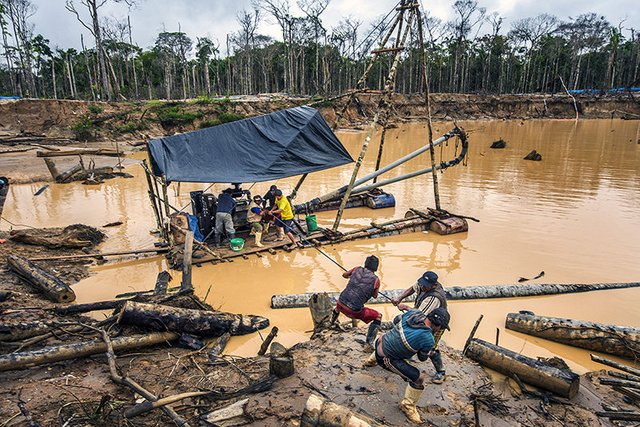Top UN panel paints bleak picture of world’s ecosystems
Scientists call the Intergovernmental Biodiversity Society to improve the effectiveness and development of the developmental approach.

Biodiversity is alert to many parts of the world, finding decisive estimates of global ecosystem health in decades.
The Global Science Body established in the United Nations in 2012, the end of the three-year performance by the Intercultural Science and Policy Platform on Biodiversity and Ecosystem Services (IPBES), Environmental Health. Estimates of biodiversity loss in Africa, America, Europe, Central Asia and Asia Pacific.
"We're losing 1,000 times faster than the endangered natural rate and see the mass effects of human prosperity," said Robert Watson, chairman of the IPBES headquarters in Bonn, Germany.
From the first years of IPBES to the end of 2014-18, 500 scientists from 100 countries have come up with estimates. Conservation scientists and IPBES are now reflecting on body function, and some researchers have suspected that the group is aimed at influencing its policies and running a global change.
The group's latest reviews, which began at a meeting of 129 member countries of the venue in Medellín, Colombia, in March 18-24 featured a full-fledged picture. IPBES reports that 28 percent of the predicted species in Europe and Central Asia are at risk of extinction. The threats, liverworts and freshwater fishes have a lot of accidents. By 2100, climate change is likely to cause damage to half of Africa's bird and mammal species.
Land loss
Meanwhile, land degradation as a healthy soil loss has now reached critical levels and threatens the livelihood of 3.2 billion people, according to an IPBES estimate. The destruction of ecosystems limits products and services that can attract people from the environment in the future to the people, such as diets and drugs. Since 1900, about 50% have been lost and wetlands have been very harmful. As a result of earthquake and climate change, world crop yields are expected to fall to an average 30 years in 10 years.
In many areas, greedy farming and aquaculture practice is increasingly blamed, Watson said. As the current trends persisted, the Asia-Pacific region increased all the exploitative fish reserves by 2048. Watson adds excessive consumption of Europe to subsidies promoting food production to pesticides and fertilizers.
IPBES Reports suggest that many races lose Lion's share of their UN targets to move toward sustainable growth by 2020 and by 2030.
Appraisals have found some progress. For example, in the Asia-Pacific region between 2004 and 2017, terrestrial protected areas grew by 0.3% and 13.8% in marine protection areas. But it is not enough to just set up protected areas, Watson said. Biodiversity issues should be included in the development of policies in agriculture and transport.
Policy promotion
Thomas Brooks, Gland in Switzerland, Head of Science and Science at the International Union for Conservation of Nature, focused on IPBES Science Assessments. He suggested that it should allocate more time for the development of the local knowledge structure and its other tasks to its values, which are echoed by recent time internal review. In 2016 and 2017, IPBES spent US $ 4.3 million and other jobs $ 1.9 million. Brooks stated that "creating a long and large pile report is not enough to drive the world on the track to be simplified."
Watson says these problems will be examined by an independent external review of IPBs due to start next year. In the meantime, the Plenary agreed to assess three new plans, including the steady use of wild species.
IPBES intends to attract political attention to biodiversity, as well as for the meteorology of the Intergovernmental Panel (IPCC) for meteorology. Biodiversity is essentially needed for the body like IPBES, a natural resource scientist named James Myers in the International Institute for Environment and Development (IIED) in London. But there is a reputation of its sister company and he has not yet considered. "It's not taken seriously yet, but it's not true," he says.
Watson agrees that the firm still recognizes its stability, but the IPC has attracted more body governments in the first five years of the body than during the same period.
Challenges arise, Watson ran, Watson said. For example, after some researchers complained that some social scientists had been nominated to work on calculations, the panel's experts found governments some. "We are moving in the right direction," he says.